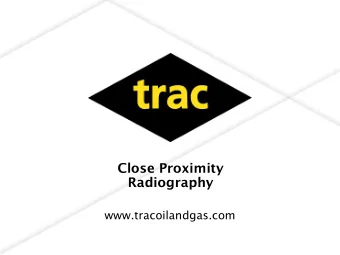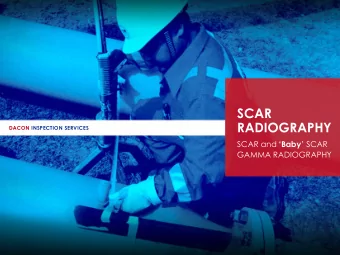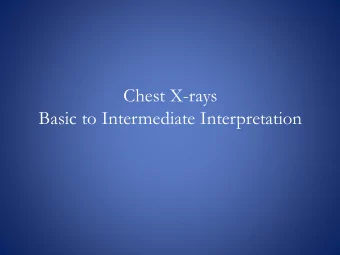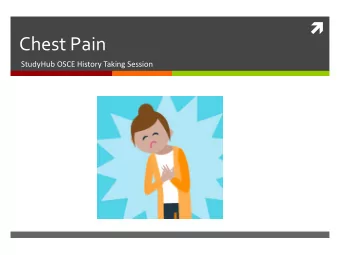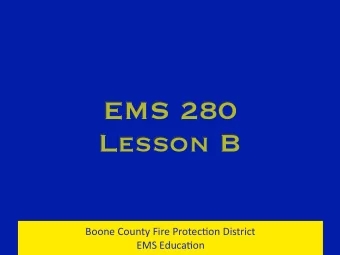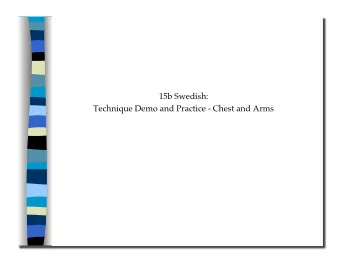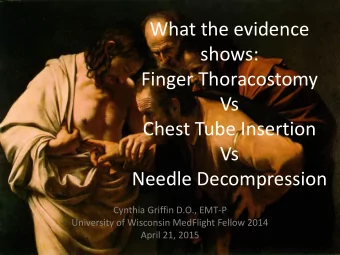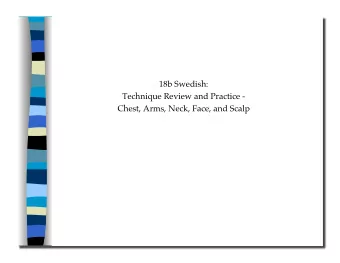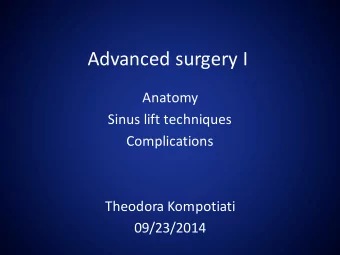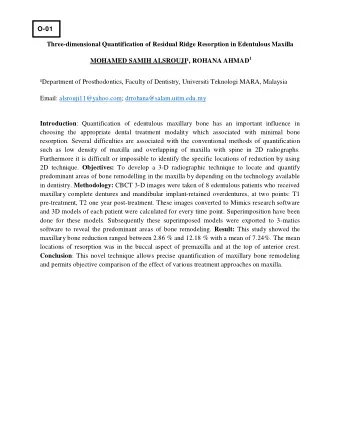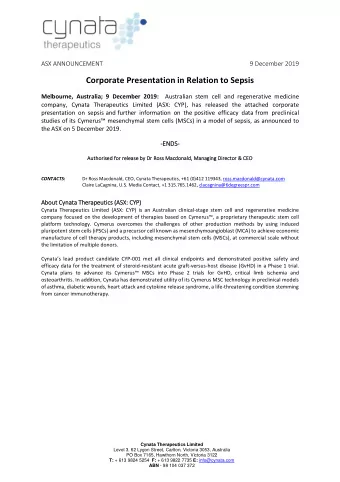
Matthew Tommack, D.O. October 13, 2018 Chest radiography Anatomy, - PowerPoint PPT Presentation
Matthew Tommack, D.O. October 13, 2018 Chest radiography Anatomy, pathology Shoulder Radiography Anatomy, pathology Knee Radiography Anatomy, pathology Anatomy Consolidation Atelectasis Pulmonary Edema Pleural Effusion
Matthew Tommack, D.O. October 13, 2018
Chest radiography ◦ Anatomy, pathology Shoulder Radiography ◦ Anatomy, pathology Knee Radiography ◦ Anatomy, pathology
Anatomy Consolidation Atelectasis Pulmonary Edema Pleural Effusion Pneumothorax
Technique, type and quality Ribs and spine Upper abdomen Soft tissues Borders of the mediastinum/heart Lungs ◦ Pneumothorax ◦ Consolidation ◦ Pleural effusion ◦ Interstitium/vessels
When fluid/cells accumulate in lung ◦ Alveolar (airspace) compartment ◦ Interstitial compartment In addition to increasing the lung density, the consolidation cancels the contrast between vessels and lung boundaries, and these structures disappear, ie silhouette sign Air filled bronchi, normally invisible, will be contrasted by consolidation creating air bronchograms
RUL: right superior mediastinum (SVC) RML: right heart border RLL: right hemidiaphragm or right heart border if medial RLL LUL: left superior mediastinum (aortic arch) Lingula: left heart border LLL: left hemidiaphragm or descending aorta
Obstructive / Resorptive ◦ Endobronchial Lesion Passive / Relaxation ◦ Pleural Effusion, Pneumothorax Compressive ◦ Bulla Cicatricial/Scarring ◦ Radiation Fibrosis Adhesive ◦ Neonatal Respiratory Distress Syndrome/Hyaline Membrane Dz
Lobar Segmental Subsegmental (Plate/Streak) Round
Heart size on ideal PA film ◦ Heart width should be less than 50% of chest cavity width. ◦ Cardiac enlargement is common in CHF Normal upright upper lung pulmonary vessels 1/3 the size of basilar vessels. Early CHF ◦ Basilar edema causes shunt to upper lobe = cephalization of flow. Interstitial edema ◦ Thin Kerley B lines (septal lines) and thick bronchi Parahilar alveolar edema ◦ Usually symmetric and non-segmental
Measurement of the Cardiothoracic ratio: [(MRD+MLD)/ID] A value of <0.5 is normal (<0.6 in infants). Enlargement may come from heart or pericardium.
Pleural effusion is seen in many conditions ◦ Heart failure ◦ Tumor ◦ Pneumonia ◦ Trauma Obscures and compresses underlying lung Effusions are readily detected ◦ Can point to underlying problem that may not be seen on x-ray, ie infection, tumor On routine upright chest x ray, need 200-300 mL of pleural fluid to blunt costophrenic angle On lateral view, need only 75cc to blunt posterior costophrenic sulcus Lateral decubitus is most sensitive and can be helpful to determine of fluid is loculated
Injury to the lung, either trauma or iatrogenic Air leakage into the pleural space Spontaneous cases (idiopathic) also occur Severity and duration of pneumothorax is made worse by increased airway pressure ◦ Obstructive airway disease or positive pressure ventilation If a "flap valve" mechanism is present, progressive enlargement of space may compromise cardiac filling and ventilation (tension pneumothorax) Expiratory films aid in detection
Skin folds often simulate pleural lines ◦ True pleural line has air on both sides of a fine line ◦ Most pneumothorax look-alikes have air on only one side and are not real lines Mastectomy Bulla/blebs
Discussed normal chest x ray with development of approach Common clinical pathologies Questions
Anatomy Pathology
Clavicle Acromion Coracoid process Greater tuberosity Glenoid Lesser Tuberosity
Glenohumeral Joint
coracoid Acromion Clavicle Glenoid
Clavicle Acromion Glenoid Face
Supraspinatus Tendon Footprint Labrum Cartilage
Bursa Supraspinatus footprint
Supraspinatus Infraspinatus Subscapularis Biceps Tendon
Fractures Dislocations Arthritis Calcific tendonosis Avascular necrosis Indirect signs of soft tissue injury Tumors
Humeral Head Fracture -can be very subtle and CT or MRI may be needed -surgical management depends on amount of humeral head involved and degree of displacement
Anterior Dislocation -most common type of dislocation -complications include Hill sachs impaction fracture and Bankart lesions as well as rotator cuff injury
AC Joint Injury-High Grade -Grading depends on degree of diplacement which relates to degree of soft tissue involvement
Osteoarthritis and chronic rotator cuff tear
Calcific Tendonosis, HADD -may be incidental, but can acute cause pain -supraspinatus is one of the most common sites -Treatment is usually conservative, but ultrasound guided lavage can be performed, surgery rarely needed
Avascular Necrosis -humeral head is second most common site behind hip -can lead to subchondral collapse -MRI is most sensitive for early detection in high risk patients
Cartilage forming bone tumor -enchondroma, chondrosarcoma -predilection for metaphasis of long bones, tubular bones of hands and feet -treatment depends on aggressive features and many times symptoms may be the only deciding factor
Anatomy Common Pathology Questions
Anatomy Pathology
Tibial PCL ACL MCL Spines Fibular Head Menisci
Quadriceps Suprapatellar Tendon Recess ACL PCL Patellar Tendon
Patellofemoral joint space Menisci Cartilage
Fractures Arthritis Osteochondral Lesions Signs of internal derangement Soft tissue injuries Tumors
Tibial Plateau Fractures -Treatment depends on severity of comminution, displacement, depression of subchondral bone, and associated soft tissue injuries -will generally go on to CT or MRI
Osteoarthritis -osteophyte formation, joint space loss, subchondral cyst, subchondral sclerosis
Transient dislocation of patella with joint effusion and osteochondral lesion
Recommend
More recommend
Explore More Topics
Stay informed with curated content and fresh updates.
